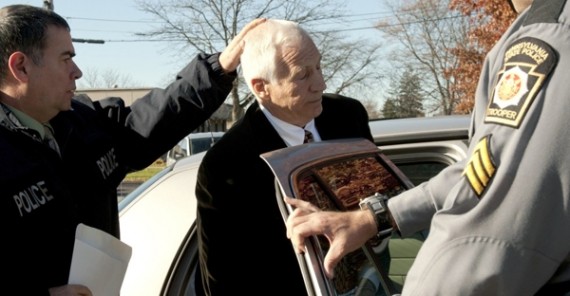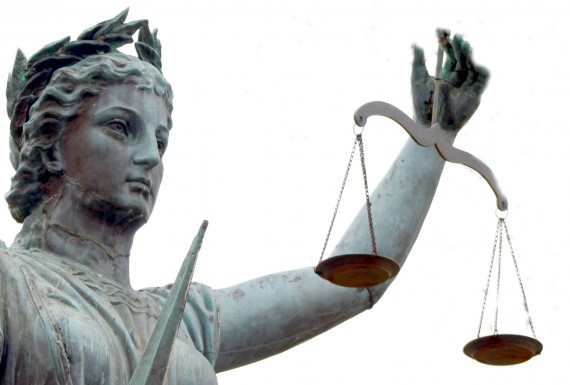Recently, a former college football coach was found guilty of sexually molesting numerous teenage boys. What made the story even more disgusting (and sad), was that other coaches and members of the college faculty knew about the incidents and didn’t follow up on the case. (Including coaching legend, Joe Paterno.)
The coaching staff and faculty knew what was going on – that children were being sexually molested and abused by the college assistant coach – and they still did nothing about it. They were indifferent and didn’t follow up on the matter to see if the charges against the assistant coach were indeed true.
When the news of the Penn State sex scandal was uncovered, the country was stunned.
Everybody was sickened, and disturbed that a grown man could commit such a crime and have other coaches and members of the college overlook the crime as if it were no big deal. Everyone felt a, “this isn’t right,” deep in their bones.

But wait a second…
Who determines what is right, and what is wrong?
How do we know what is moral and what is immoral?
What’s the measuring stick that determines what is true, right, and good, and what is wrong, false, and unjust?
Answer: the truth determines what is right and what is wrong.
We need absolute truth.
While absolute truth isn’t always black and white (sometimes the truth is relative and “grey”), we need absolute truth to determine what is right and what is wrong.
The truth helps us say, “this is right, and that is wrong.”
Without an absolute truth that determines what is right and what is wrong, we can’t have justice, because justice is ultimately a matter of making right that which is wrong.
If there is no standard of truth that defines the standard of life and morality, then there is no measuring stick that determines what’s right and what’s wrong. And if there is no measuring stick that defines what’s right and what’s wrong, then there is no justice.
Is anyone going to look at a child being sexually molested and say, “that’s ok, it’s not a big deal.”?
If you’re answer to that is a loud NO (which I sure hope it is, otherwise you need major help), then you are agreeing that there is a sense of “this is right, that is wrong.” In short, you are agreeing that there is an absolute truth that sets the bar for what’s right and good, and what is wrong and bad. (I would argue that the Bible is this absolute truth. But that’s a discussion for another time.)
Our culture is not too fond of truth. We each want to have our own little universe with our own set of rules as we are our own judge of what’s good, what’s right, and what’s wrong. We want to be our own boss, set our own rules. After all, this is my life… right?
But there is a grave danger in this mentality. Because if each one of us gets to determine what’s right and what’s wrong – aka, whats the truth that establishes moral living – then whose to say that what the Penn State football coaches and college faculty did was wrong?
If I get to make up my own truth, then who is to say that I’m wrong?
If you want justice, then you must have truth.

Justice is about correcting oppression, repaying the criminal for the crime he committed, and judging those who have committed such crimes. (Is anyone going to deny that the person who rapes your family member or best friend should be put in prison?)
So if there is no absolute truth that is the measuring stick that determines, “this is right, and that is wrong,” then we can have no justice.
And if we have no justice, then college football coaches sexually abusing children won’t be punished for their crime.
If you hear this story about young boys being sexually molested by a college football coach and think, “that’s messed up. That’s not right,” and feel an anger and a vengeance in your soul, then you are experiencing exactly what I am talking about.
If you feel a, “that’s wrong” sort-of feeling in your bones when you hear the story about the Penn State scandal – that a coach sexually molested several children, and that other coaches and faculty of the college knew about this injustice and didn’t care enough to do anything about it – then know that you are really on the side of justice and absolute truth. (So stop denying absolute truth; it’s ok and good to affirm that :) .)
Yes, some matters of truth are relative. But what’s relative is informed by what’s absolute.
We need absolute truth because it informs our justice. And without justice we will be condoning those who molest our children (among many other crimes.
If you throw out the truth, you throw out justice.
Truth and justice are married. And that’s a good thing.
Leave a Reply